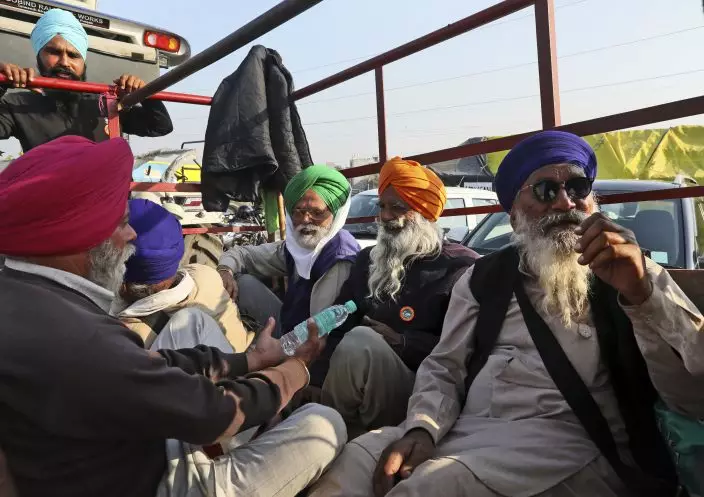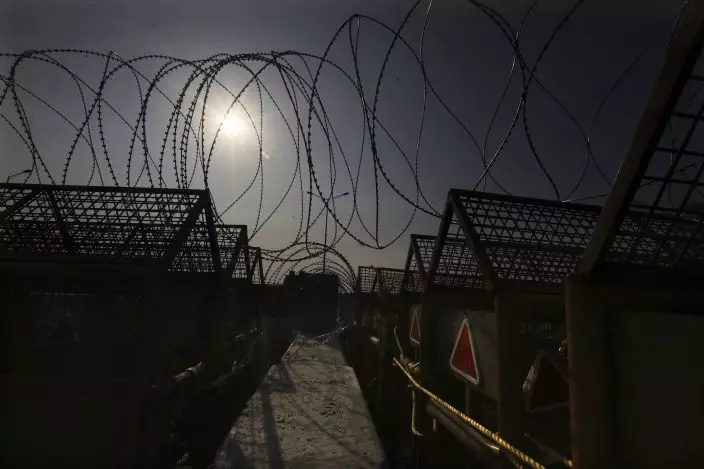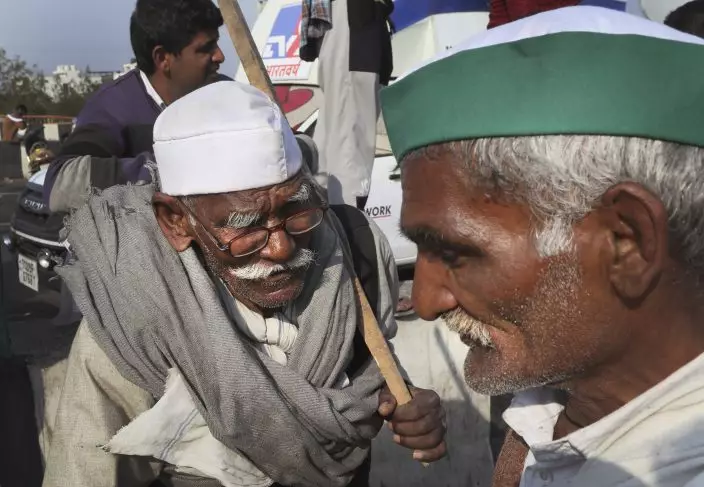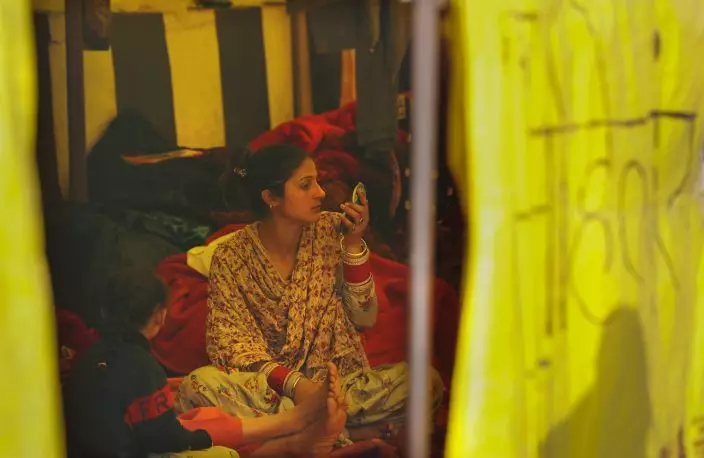Tens of thousands of protesting Indian farmers plan to blockade highways across the country for three hours Saturday to press their demands for the repeal of new agricultural laws.
Authorities deployed thousands of security forces mainly outside India’s capital, where farmers have camped at three main sites for more than two months. They say they won’t leave until the government rolls back the laws it says are necessary to modernize Indian agriculture.
The scheduled highway blockade is set to start at noon local time (0630 GMT).

Elderly farmers arrive at one of the three main protest sites outside New Delhi's border with Uttar Pradesh in New Delhi, India, Friday, Feb. 5, 2021. India's agriculture minister on Friday defended the new agriculture reform laws in Parliament, dampening hopes of any quick settlement with tens of thousands of protesting farmers demanding their repeal by blocking three highways connecting New Delhi to northern India for over two months now. (AP PhotoManish Swarup)
Several rounds of talks between farmers with the government have failed to produce any breakthroughs.
The farmers say the laws will leave them poorer and at the mercy of corporations. Their action is a major challenge to Prime Minister Narendra Modi.
On Friday, Agriculture Minister Narendra Singh Tomar defended the laws in Parliament, dampening hopes of a quick settlement as he made no new offer to resume talks with the farmers.

Heavily barricaded road along one of the three main protest sites outside New Delhi's border to thwart the growing farmers' protest on the edges of the capital, at Delhi-Uttar Pradesh border, in New Delhi, India, Friday, Feb. 5, 2021. India's agriculture minister on Friday defended the new agriculture reform laws in Parliament, dampening hopes of any quick settlement with tens of thousands of protesting farmers demanding their repeal by blocking three highways connecting New Delhi to northern India for over two months now. (AP PhotoManish Swarup)
The largely peaceful rally turned violent on Jan. 26, India’s Republic Day, when a group of of farmers riding tractors veered from the protest route and stormed the 17th century Red Fort. Hundreds of police officers were injured and a protester died. Scores of farmers were also injured but officials have not given their numbers.
Farmer leaders condemned the violence but said they would not call off the protest.
Since then, authorities have heavily increased security at protest sites outside New Delhi’s border, adding iron spikes and steel barricades to stop the farmers from entering the capital.

Elderly farmers talk on a heavily barricaded road along one of the three main protest sites outside New Delhi's border to thwart the growing farmers' protest on the edges of the capital, at Delhi-Uttar Pradesh border, in New Delhi, India, Friday, Feb. 5, 2021. India's agriculture minister on Friday defended the new agriculture reform laws in Parliament, dampening hopes of any quick settlement with tens of thousands of protesting farmers demanding their repeal by blocking three highways connecting New Delhi to northern India for over two months now. (AP PhotoManish Swarup)

A newly wed woman looks in a mirror as she joins her farmer husband for a protest in a makeshift tent in one of the three main protest sites outside New Delhi's border, India, Friday, Feb. 5, 2021. India's agriculture minister on Friday defended the new agriculture reform laws in Parliament, dampening hopes of any quick settlement with tens of thousands of protesting farmers demanding their repeal by blocking three highways connecting New Delhi to northern India for over two months now. (AP PhotoManish Swarup)


